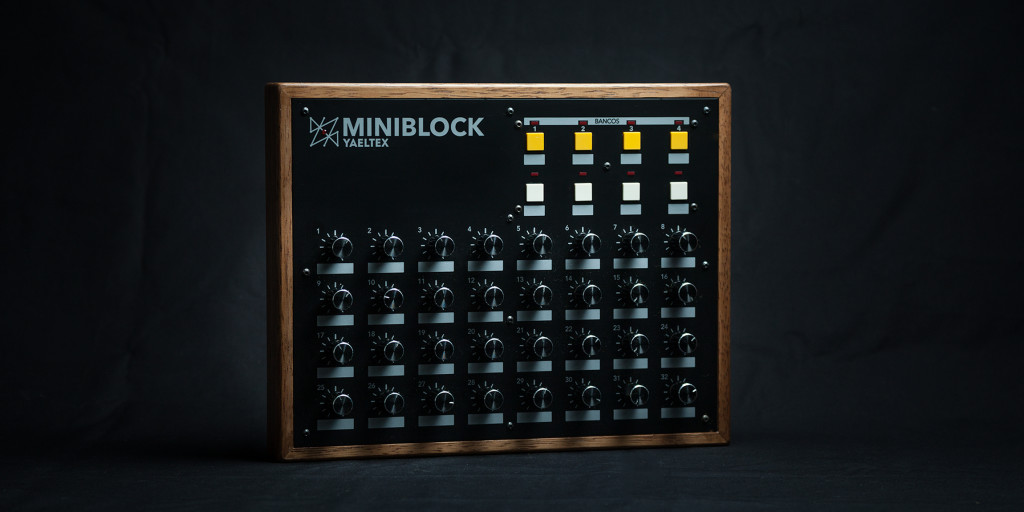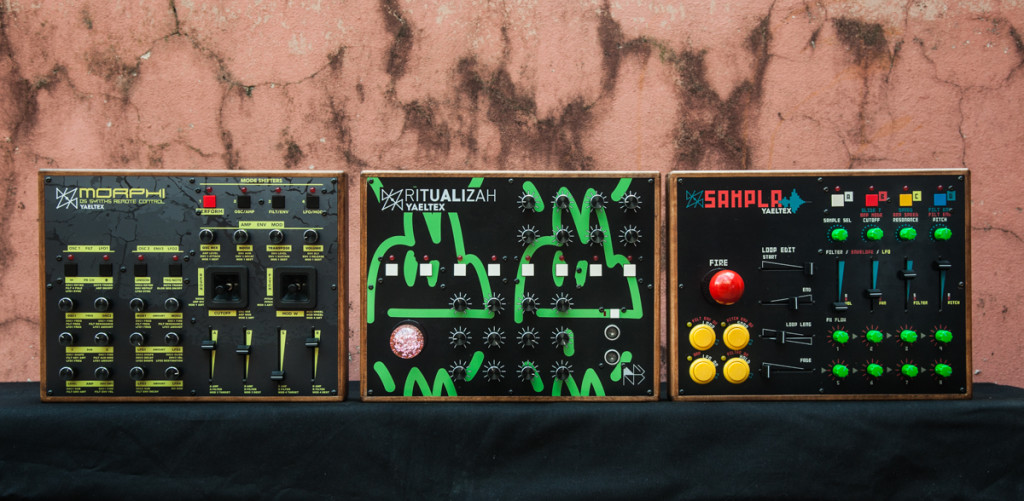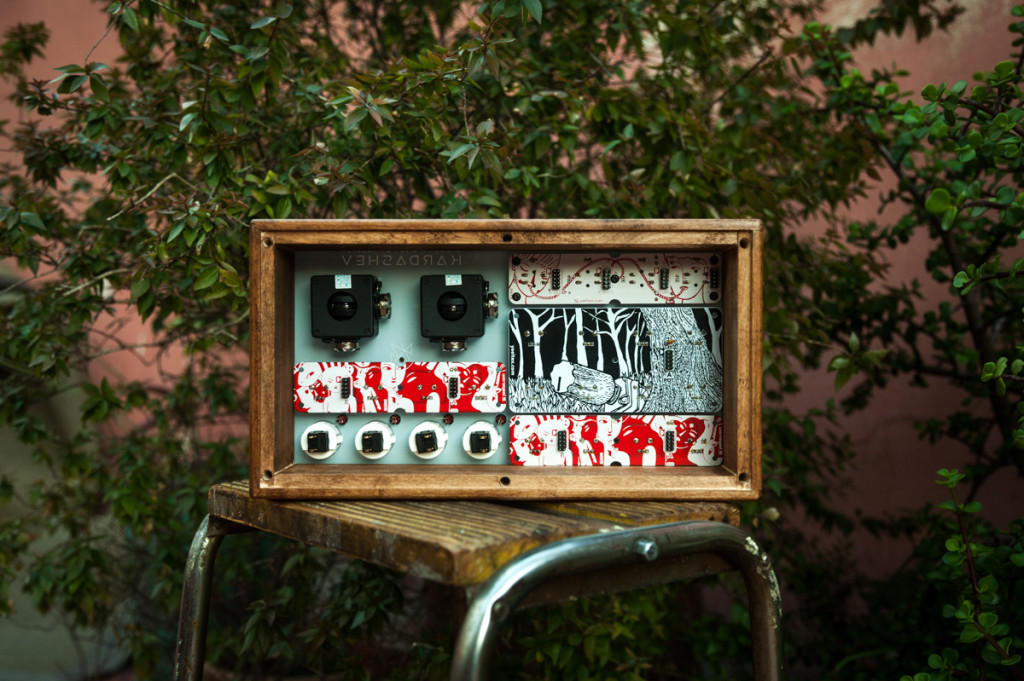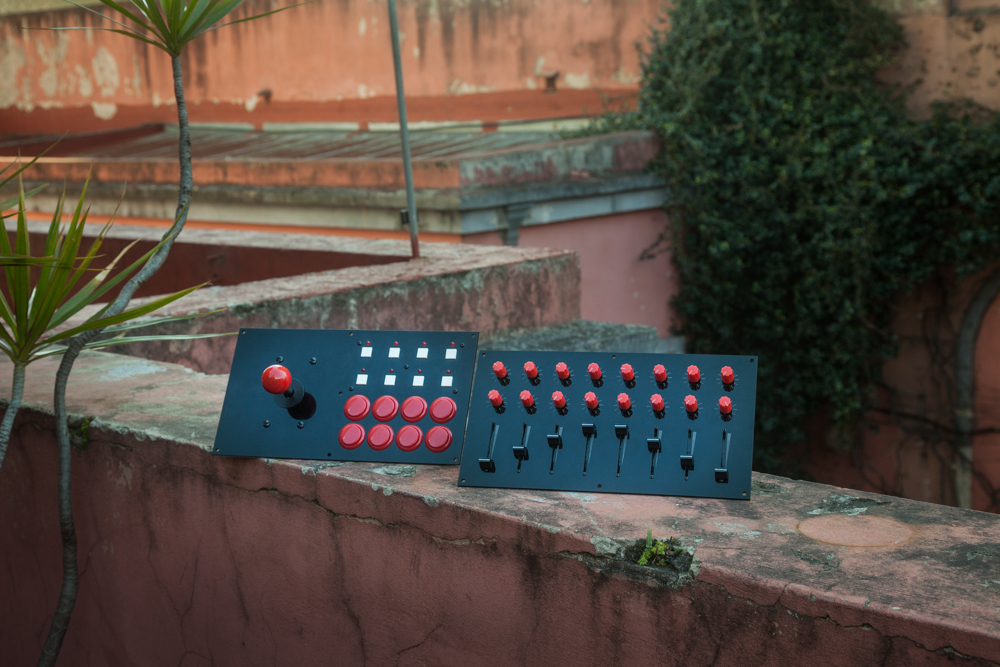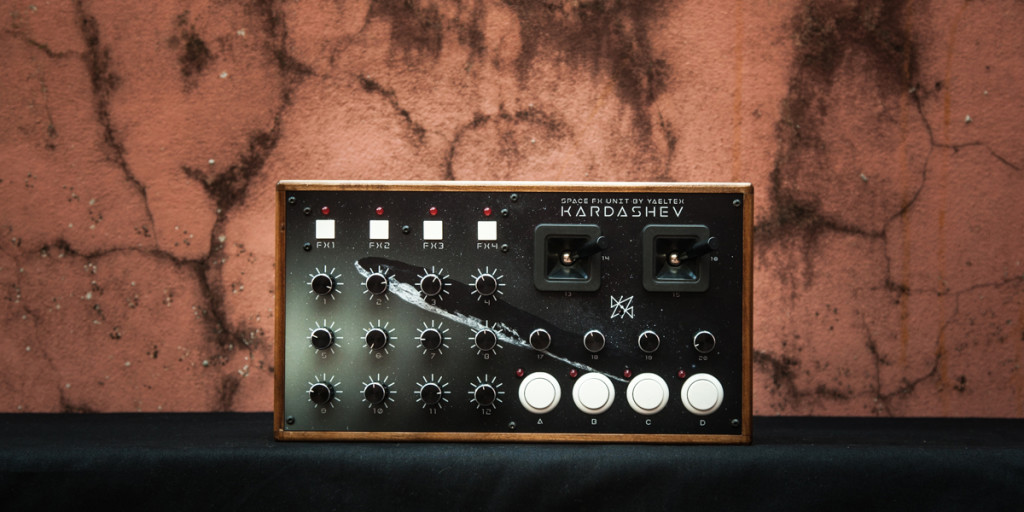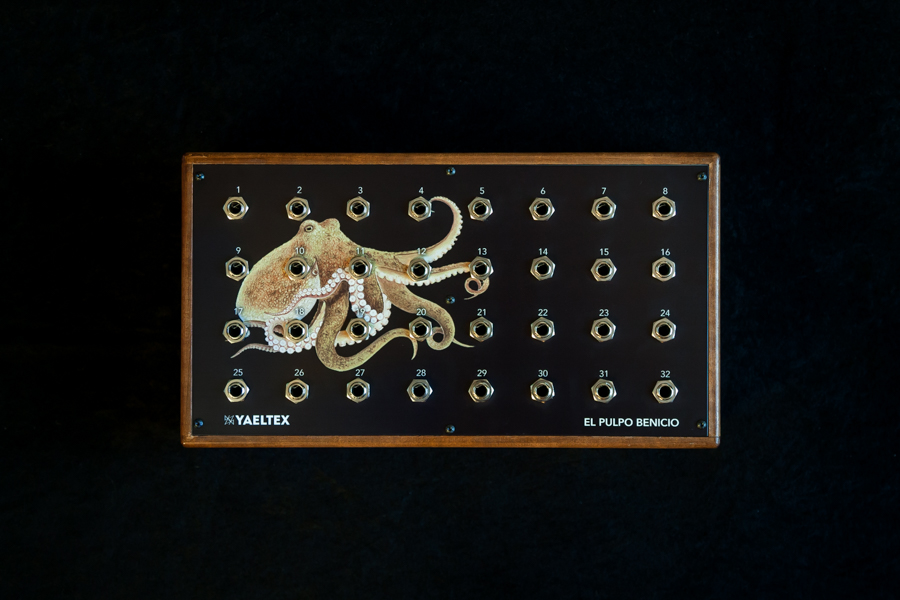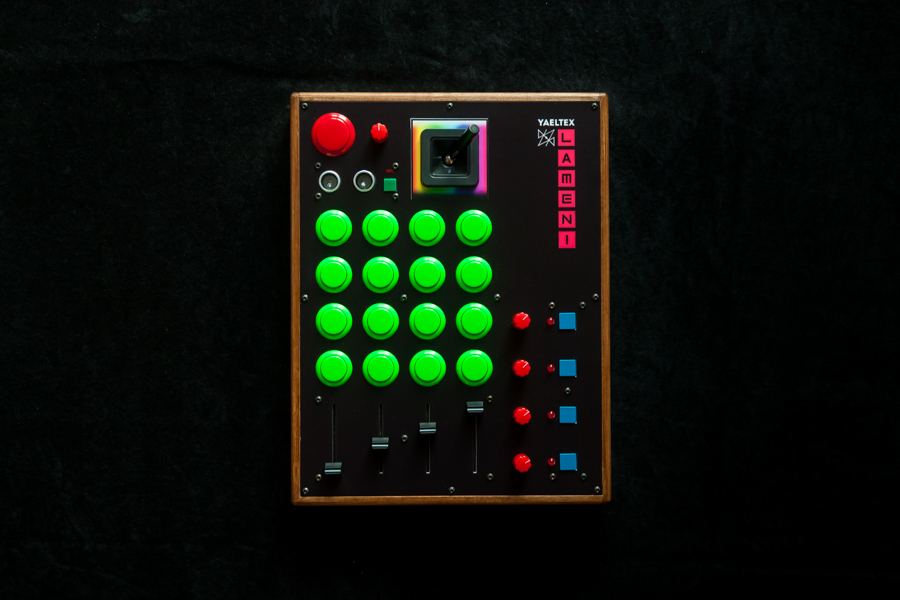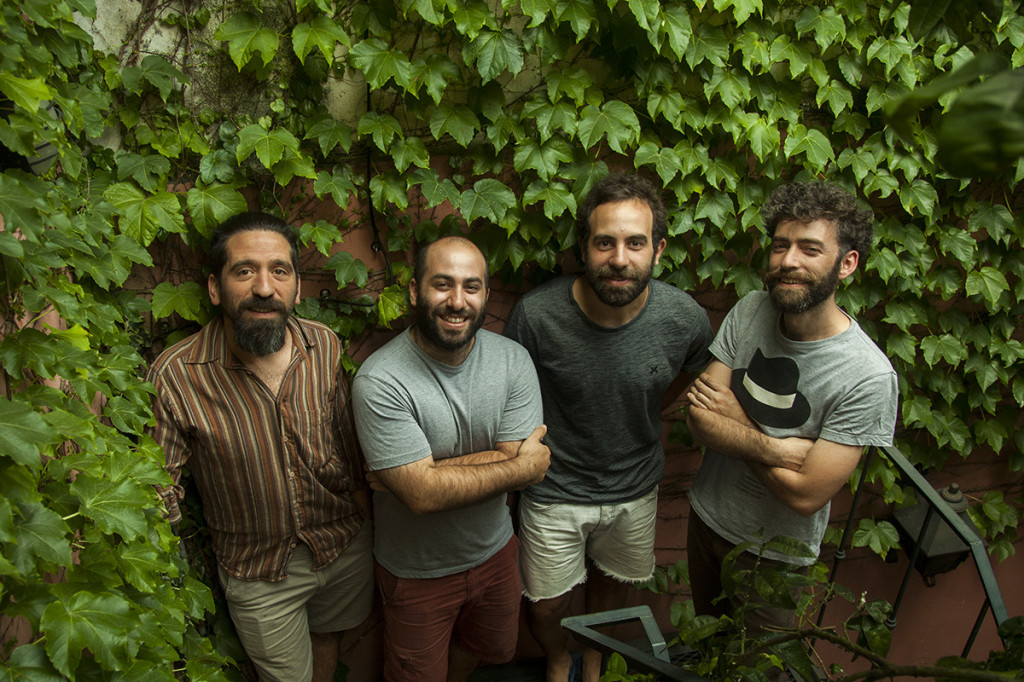Latin America has long been a source of creativity in electronic music. But a bright spot in growing its own electronic hardware comes from Yaeltex, and their vision of unique custom instruments.
A new producer in Argentina
Based in Buenos Aires, Yaeltex are specializing in custom controllers for a range of musical and visual applications, hardware and software. There’s the Miniblock – a high-end, boutique wood-cased controller made in a run of just 30 units. (The wood even comes from their hometown in Patagonia.) And they also make wild, one-off custom controllers direct from customers’ imaginations – plus a platform that lets DIYers make their own stuff from scratch. And they’ve got growing plans in the works, too.
Whether you’re a customer in Buenos Aires or Barcelona, it’s also a big deal that this is coming from Latin America. It’s a first indication of the kind of makers we could see spring up in the area.
And there’s a need. While the particulars differ from country to country, South America faces two major problems. One, a lot of people just don’t have the purchasing power on local salaries and with local currencies to afford products priced for countries like the US, UK, Japan, or Germany. Two, as if that weren’t bad enough, these countries typically slap high import duties on top of the products, making them even more expensive to import. (To the north, Mexico’s trade alliance and economic integration with the USA helps on that second point, at least.)
Of course, these problems could also be an opportunity for a new wave of musical inventors based in the region. And then there’s the chance to localize directly to Spanish and Portuguese.
Custom controllers
On the custom side, you’ve got a range of custom modules that can be combined into a dream controller, including faders, pots, switches with LED lighting, distance sensors, joysticks, and arcade buttons. And they do cool color panels. These are made into the one-of-a-kind rarities you see here, made in conversations with the buyers.
And an open platform
Then there’s the Kilomux shield, which makes it easier to produce your own MIDI controllers using the open, artist-friendly Arduino environment.
Around that, they’ve constructed a whole ecosystem of tools for connecting modular controller add-ons, and configuring the hardware with custom names and I/O mappings – all of these tools open source.
How is this being used? Mateo Ferley Yael tells us:
Most of our clients are making custom controllers for Ableton Live, Traktor, dedicated VST controllers and Hardware Synth controllers like MORPHI, that is designed to control Dave Smiths Mopho and Tetra, making possible to access most “hidden” parameters of the synth in its hardware interface. We also have lots of interest from VJs that are designing their own controllers to use in Resolume, Modul8, Isadora, vvvv or processing.
With Ableton users in mind, there’s a 20% discount for nativeKONTROL DDC for adding integration with Ableton Live.
In conversation
I asked some other questions of Mateo about how their projects are evolving.
Peter: What led you to produce the Kilomux?
Mateo: We were inspired by Livid’s Brain, the Highly Liquid [DIY MIDI range], and the Doepfer DIY MIDI boards, which we used in our first projects. After using them, we had the idea to make an Arduino-based and open source take on this kind of board. Because “Arduino-based” sounds difficult by default for many musicians and artists, we also made a friendly framework to work with, without the need to solder (using ribbon cables to connect modules) or write code (using our Kilomux configuration tool, Kilowhat). We are now working on a new version of it, adding lots of new features and stuff we learned since 2015, that we hope to launch in early 2019.
What does it mean that you’re trying to build up the scene in Argentina – what’s that like?
Well, even if in Argentina we have a big and competitive software industry, there’s not much hardware development for arts and expression, but happily, we see more brands coming up every year. In a context with such economic constraints and instability, it is really hard to grow a business around products that are not about basic needs. Our brand and most of the hardware manufacturing brands around here are all led by passionate people that choose to risk their time and economic resources to make what we love. There is an amazing synth and Eurorack community and a growing offering of locally-made modules and synth-related products.
Are you finding you’re getting a Latin American customer base, too? What do you think the future of that may be?
Presently, our main target is Latin America. Most of our customers are in Argentina; we have a growing customer community in Mexico and we’re starting to get orders from other Latin American countries. For people from this part of the world, it’s not typical to see products like ours made in Latin America, because of the lack of a local hardware industry. Most of the equipment we buy comes from EU, US, or China, and that’s not because we don’t have the talent or knowledge – the main cause is high manufacturing costs. Shipping charges and taxes make it almost impossible for us to be competitive with the prices of leading manufacturing countries. So people that get to us and see our products are happily surprised when they find we have something special, well done, with support and care for details.
We find that Latin America is a missing voice inside this industry. The way we decided to go is to add value by making unique and original products. We already ship worldwide through FedEx, but we are looking forward to hitting the international market in 2019.
Ed.: this also of course illustrates why protectionism doesn’t necessarily benefit the local manufacturing scene – because it makes importing components more expensive, thus driving up local prices. So it’s terrific they’ve managed to navigate around that problem.
What are you sourcing locally actually, versus importing?
We are locally sourcing all the casing (front-back panels, wood case custom made in Patagonia) and have in-house software development, hardware design and product assembly workforce. All the electronics comes, after testing and tough-selecting the best providers, from the US and China. Even import taxes and shipping costs are really high, we are working hard to keep prices as low as we can.
Thanks, Mateo! We’ll be watching!
So, there’s so much to see with their custom platform for DIYers, that I’ll devote that to another story. And keep your eye out for other developments from Yaeltex and the scene in Argentina and around Latin America. (We’re spoiled with all the interchange in Europe, thanks to being closer geographically and bound together by cheap, fast trains, buses, and flights! So we should definitely get not only more coverage from South America, but see that it’s in Spanish or even Portuguese, since online information becomes critical! Happy to partner with any other sites working on this, too.)
More:
